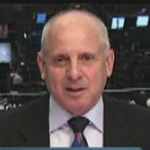
“If inflation keeps accelerating beyond their 2.5% per annum expectation, which in our view is guaranteed, increases of 1/4% in Fed funds will be implemented on a quarterly basis. Then monthly. There is a long way to go, and a long time necessary, to reach a funds rate of just 2.5%, the last peak (2019). And, dear reader, that won’t cut it when inflation is running 500 to 800 basis points higher. It’s useless for us to speculate any further. It will be a long time, measured in years, before the Fed regains control of prices. During this long period of time, inflation will rage and consumer purchasing power will shrink as wages struggle to keep up with prices. Economic activity will be severely affected by this loss of purchasing power, and slowdowns and recessions will follow. Corporate margins will shrink. Price controls, always useless and counterproductive, will almost certainly reappear on the scene. The evils of social inequality will be compounded, and social unrest will follow… There are very few places to which we will be able to escape and find safety in the coming financial and economic disaster. But recognizing the problem is the first step and we believe that we have recognized it.”
Link Here to the Quarterly Report




 07/27/2021 - Dr. Albert Friedberg on Inflation
07/27/2021 - Dr. Albert Friedberg on Inflation







